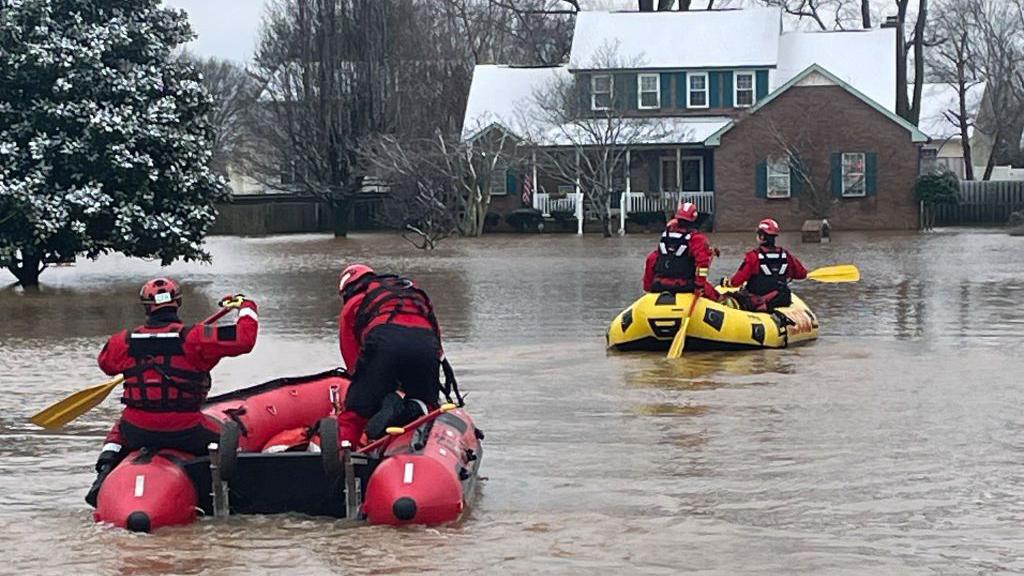Floods and heavy rain in the US leave at least nine dead

At least nine people have died over the weekend as torrential downpours caused severe flooding across parts of the southeastern US, submerging roads and homes. Kentucky Governor Andy Beshear confirmed eight fatalities in his state and indicated that the death toll could rise. Rescue teams saved hundreds of stranded individuals, many trapped in their cars, and Beshear urged residents to avoid the roads to stay safe.
The ninth death occurred in Georgia when a man in his bed was killed by an uprooted tree that crashed into his home. Kentucky, Georgia, Alabama, Mississippi, Tennessee, Virginia, West Virginia, and North Carolina all issued storm-related alerts, many of which had already been affected by Hurricane Helene in September.
By Sunday night, over half a million households across the affected states were without power, according to PowerOutage.us. The worst devastation appeared to be in Kentucky, where a mother, her seven-year-old child, and a 73-year-old man were among the fatalities. Some areas of Kentucky received up to 6 inches of rain, leading to widespread flooding. Rising river levels trapped vehicles in feet of water, and Governor Beshear reported more than 300 road closures.
Beshear has requested an emergency disaster declaration and federal funding for the affected areas. On Sunday, President Donald Trump approved the request, allowing the Federal Emergency Management Agency (FEMA) to coordinate relief efforts. Despite the response, officials warned that the worst of the flooding was yet to come. “The rivers are still going to rise,” said Eric Gibson, director of the Kentucky Division of Emergency Management. Meteorologist Bob Oravec added that the flooding would persist for some time.
In Obion County, Tennessee, heavy rains caused a levee to breach, triggering rapid flooding. Residents in the area were urged to reach higher ground immediately. The town of Rives, located along the Obion River, was overwhelmed by the floodwaters, and mayor Steve Carr declared a state of emergency, ordering mandatory evacuations due to rising water, power outages, and freezing temperatures. Rives, with a population of around 300, was among the hardest-hit communities.
West Virginia’s Governor Patrick Morrisey declared a state of emergency for 10 counties and added another three on Sunday. Kristi Noem, head of the Department of Homeland Security, reported that she had been in contact with the governors of the affected states, offering support and resources.
As the storm system moves east, meteorologists warned of an incoming polar vortex, which will bring extremely cold temperatures to the northern Rocky Mountains and northern Plains. Colorado, including Denver, is expected to experience temperatures as low as 14°F (-10°C), with shelters opening for homeless residents.
